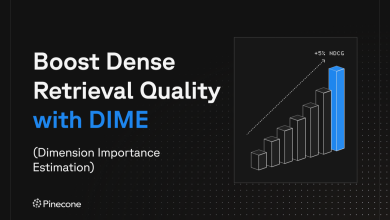
Artificial intelligence (AI) is changing the way we work fast. From factory automation to AI-powered decision-making in boardrooms, technology is reshaping industries at a pace we’ve never seen before. While AI boosts efficiency and productivity, it also raises big questions: What will happen to jobs? What skills do we need to stay relevant?
For businesses, the key to staying ahead is adapting to new technology and upskilling employees. For individuals, it’s about learning how to work alongside AI instead of competing with it. So, let’s dive into the skills that will be in high demand, the new job roles emerging, and how you can futureproof your career in an AI-driven world.
AI in the workplace: It’s already here
AI isn’t some futuristic concept, it’s of course happening now. Machine learning, natural language processing, and robotics are revolutionising industries like finance, healthcare, retail, and even creative fields.
Think about it:
-
AI analyses massive amounts of data to optimise supply chains.
-
Chatbots and virtual assistants handle customer service enquiries.
-
AI-driven marketing tools personalise content to better engage audiences.
-
Executives use AI-powered analytics to make smarter business decisions.
While AI brings efficiency, it also disrupts traditional job roles. According to the World Economic Forum’s Future of Jobs Report, AI and automation will displace 85 million jobs by 2025 – but they’ll also create 97 million new ones. The takeaway? Learning the right skills is the best way to stay competitive.
AI is creating new careers – are you ready?
As AI takes over routine and data-heavy tasks, new career paths are emerging – ones that require a mix of technical knowhow, creativity, and ethical awareness. Some of the fastest growing AI-related roles include:
-
AI & Machine Learning Engineers – The brains behind AI models, responsible for developing and refining them.
-
Data Scientists – Experts who analyse complex data to help businesses make smart decisions.
-
AI Ethics Specialists – The people ensuring AI remains fair, unbiased, and transparent.
-
Human/AI Interaction Designers – Professionals who create user – friendly experiences for AI-powered applications.
-
Prompt Engineers – Specialists who optimise AI-generated content for businesses and creatives.
The demand for these roles is rising, and they all require a combination of technical skills, critical thinking, and ethical awareness.
The skills you’ll need in an AI-powered future
Whether you’re in a tech-heavy job or working in a more traditional field, AI is going to impact your career. Here are the skills that will set you up for success:
1. Technical Skills (For those working directly with AI)
If you’re looking to land an AI-related job, these skills are key:
-
Programming & Coding – Python, R, and Java are crucial for AI development.
-
Data Analysis & Visualisation – The ability to interpret and present data effectively.
-
Cloud Computing & Cybersecurity – AI applications rely on cloud – based systems, so security knowledge is a plus.
-
Machine Learning & Deep Learning – Understanding AI frameworks like TensorFlow and PyTorch is a gamechanger.
But here’s the thing – you don’t have to be a machine learning engineer to thrive in an AI world. Basic data literacy and an understanding of AI tools can benefit any profession.
2. Cognitive Skills (The human advantage)
AI is great at handling repetitive tasks, but it still can’t think like we do. That’s why employers are looking for:
-
Critical Thinking – The ability to evaluate AI-driven insights and make informed decisions.
-
Adaptability – Willingness to learn new skills and adjust as technology evolves.
-
Creativity – AI can generate ideas, but human imagination is still irreplaceable.
-
Decision Making – AI gives recommendations, but we need human judgement to assess the big picture.
3. Social & Emotional Intelligence (AI can’t fake empathy – yet!)
AI is smart, but it lacks emotional intelligence. That’s where we come in:
-
Emotional Intelligence – Understanding emotions and handling relationships effectively.
-
Collaboration & Teamwork – AI can’t work in isolation; teams need to integrate AI solutions together.
-
Communication Skills – Explaining AI-driven insights to non – tech people is a must.
-
Ethical & Cultural Awareness – AI impacts society in big ways, and we need to make sure it’s fair and transparent.
By focusing on these human centric skills, you’ll stay indispensable in an AI-driven economy.
The ethics of AI: Why it matters
As AI takes on a bigger role in our lives, we can’t ignore the ethical implications. Issues like bias in AI models, privacy concerns, and job automation are serious topics that businesses and governments need to address.
Companies that prioritise ethical AI development, making sure it’s fair, transparent, and accountable, will have a competitive advantage. Professionals who understand AI ethics will be in high demand, helping to shape policies and advocate for responsible AI use.
How to futureproof your career in an AI world
The AI revolution isn’t something to fear – it’s something to prepare for. Here’s how you can stay ahead:
-
Learn AI-Related Skills – Whether it’s coding or just understanding how AI impacts your industry, knowledge is power.
-
Stay Adaptable – Lifelong learning is the key to career longevity.
-
Focus on Peoplefirst Skills – Creativity, emotional intelligence, and ethical reasoning will set you apart.
-
Engage with AI Tools – Get comfortable using AI – powered platforms in your work.
-
Stay Informed – Follow AI trends through courses, articles, and professional networks.
The bottom line: Humans + AI = The future
AI isn’t here to replace us – it’s here to work with us. While some jobs will disappear, new opportunities will emerge. The best way to thrive is to develop skills that complement AI, not compete with it.
By focusing on technical, cognitive, and social/emotional skills, professionals can stay relevant in an AI powered world. And businesses that invest in employee training and ethical AI adoption will be the ones leading the way.
So, rather than worrying about AI taking over, think about how you can use AI to your advantage. The future of work is all about humans and AI working together to create a smarter, more efficient, and innovative world.




